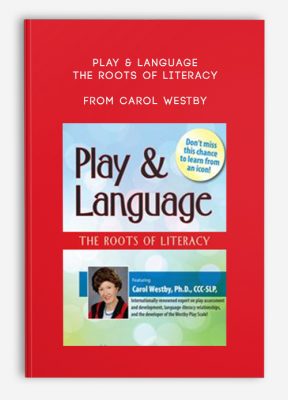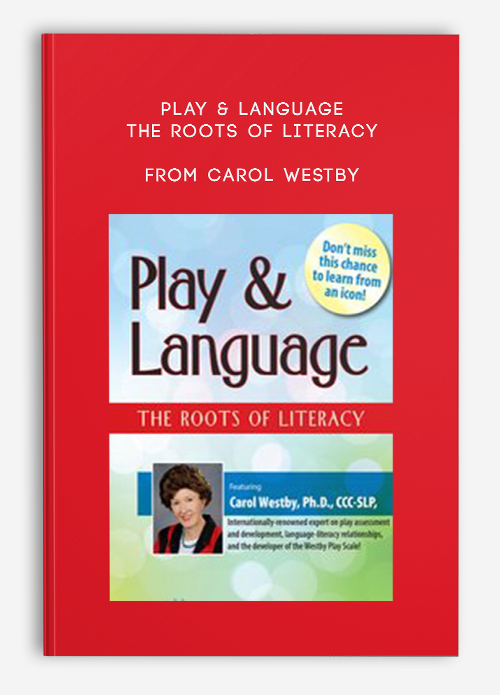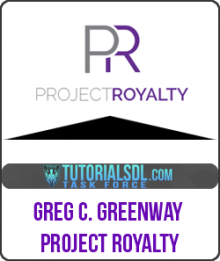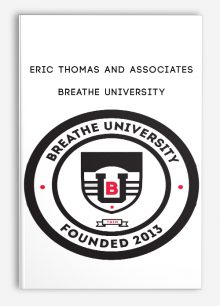Play & Language The Roots of Literacy from Carol Westby
$219.00 $65.00

Play,Language The Roots of Literacy, from Carol Westby
Faculty:Carol Westby
Duration:6 Hours 20 Minutes | Format:Audio and Video
Archive : Play & Language The Roots of Literacy from Carol Westby
Get Play & Language The Roots of Literacy from Carol Westby on Salaedu.com
Outline:
- Foundations of Cognitive-Play-Literacy Relationship: Frameworks for Assessment and Intervention
- Dynamic systems theory: integrating nature and nurture theories
- The World Health Organization’s International Classification of Functioning
- A performance competence framework for assessment and intervention
- Social-Emotional/Cognitive Precursors to Play: Birth-17 months
- Neurotypical and atypical patterns of social-emotional development
- Environmental influences on social-emotional development and play
- Temperamental variations in children
- Presymbolic play
- Development of Pretend Play Dimensions (17 months – 5 years): Relationship of Play Dimensions to Language and Literacy
- Theory of Mind Dimension (understanding thoughts and feelings of self and others)
- Decontextualization Dimension (reduced use of props in play)
- Thematic Dimension (from familiar to novel pretend themes)
- Organization Dimension (sequencing and planning of play)
- Interventions to Promote Playing to Learn
- Setting goals for playful learning
- Promote literate-style language through play
- Develop phonological awareness skills through playful practices
- Promote thematic pretend play to develop foundations for language and literacy
Get Play & Language The Roots of Literacy from Carol Westby on Salaedu.com
Description:
Don’t miss this opportunity to learn from Dr. Westby!
Language, cognitive and social-emotional learning skills are all essential for literacy development and academic success. Research shows that play is the universal activity that blends cognitive, social, emotional, linguistic and motor components. Observing children’s play provides information about their knowledge, views of the world and mastered skills.
Join Dr. Westby as you learn about the vital relationship between the dimensions of play, social-emotional functioning, language and literacy. Learn firsthand, how to effectively use the Westby Play Scale—a tool that offers a way to evaluate all young children’s (birth-5 years) symbolic play skills. Supported by 40 years of evidence-based research and organized by developmental level, this tool will breakdown the milestones children should be achieving with their play and language. You will also learn play practices and play strategies to improve language, cognitive and social-emotional skills, including:
- Higher-level thinking, problem-solving and creativity
- Advancing language skills and text comprehension
- Awareness of temporal, cause-effect and social relationships
- Motivation, self-regulation and empathy
- Interpreting and responding appropriately to the needs, desires, and roles of others
These intervention activities will work for all young children, but special focus will be given to interventions for children with language learning disabilities, autism, socioeconomic/cultural variations and ESL.
1 review for Play & Language The Roots of Literacy from Carol Westby
Add a review Cancel reply
Related products
HEALTH - FITNESS - LIFESTYLE - MEDICAL
Fitness Mentors – Audio Lectures, Practice Tests and Study Guide for the NASM CPT Ex
HEALTH - FITNESS - LIFESTYLE - MEDICAL
HEALTH - FITNESS - LIFESTYLE - MEDICAL
HEALTH - FITNESS - LIFESTYLE - MEDICAL
HEALTH - FITNESS - LIFESTYLE - MEDICAL
HEALTH - FITNESS - LIFESTYLE - MEDICAL
HEALTH - FITNESS - LIFESTYLE - MEDICAL
HEALTH - FITNESS - LIFESTYLE - MEDICAL










king –
“I appreciated how Carol Westby engaged the participants in a variety of ways. For example, she started talking about her raising ducks, which was an innovative and attention-getting way of making her point. It helped me refocus on the material and stay engaged (similar to a Brain Break that educators do so often with students). I can’t say enough positive things about this learning.”